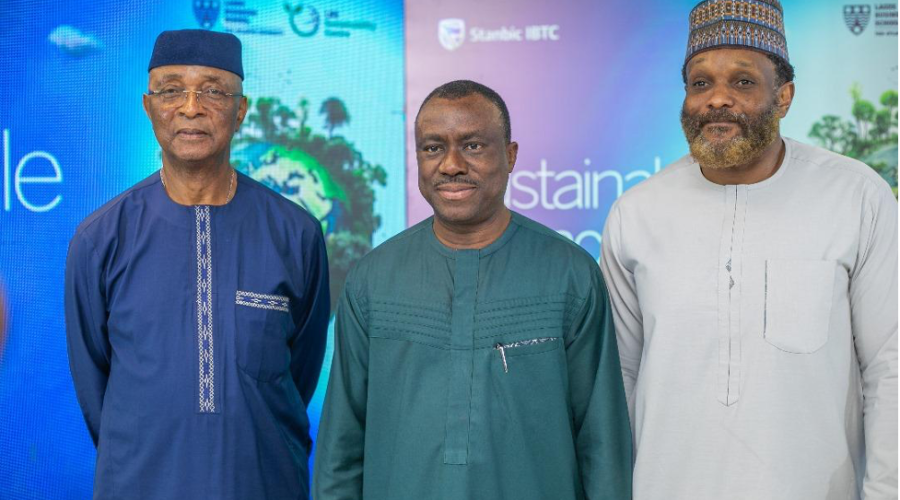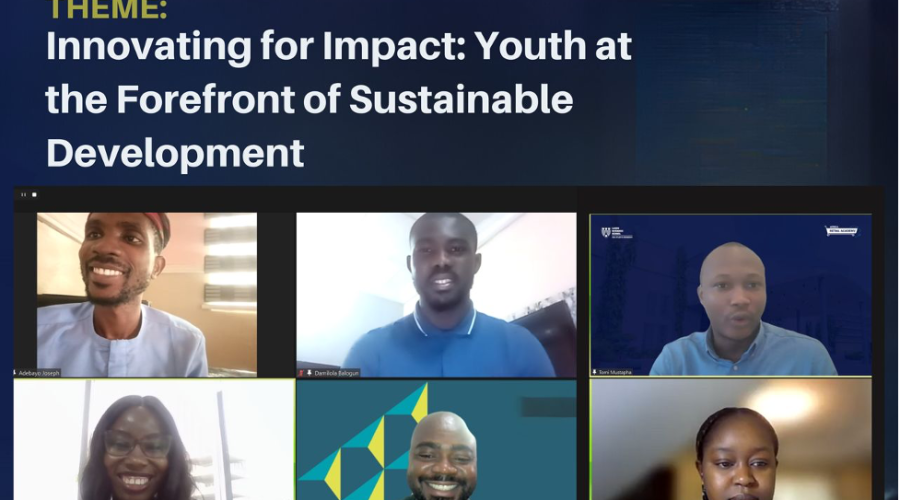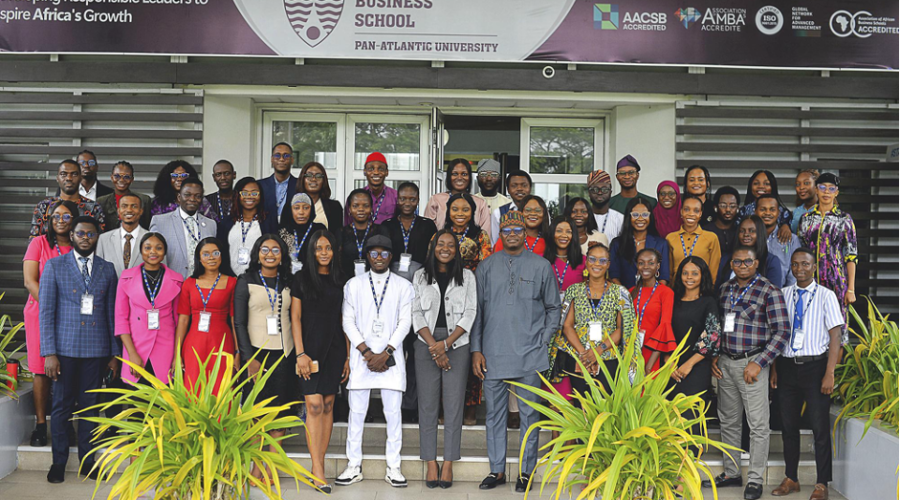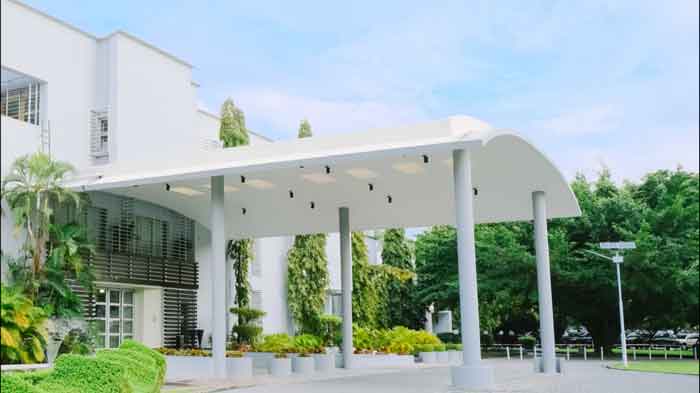True Leaders Training Series – Cross section of Participants and Facilitators at the Executive Workshop Themed Leading Impact through the Circular Economy which held at Lagos Business School on May 3. 2023
The Lagos Business School Sustainability Centre, in partnership with the Circular Business Platform – an initiative supported by the Netherlands Enterprise Agency and implemented by the Circular Economy Innovation Partnership (CEIP), conducted the True Leaders Training Series. The program trained Facility Managers through a sequence of events, culminating in over thirty (30) executives completing the course in Lagos. The series consisted of a web-forum, an executive workshop, and a business mixer forum, which offered various engagements to the participants.
The improper management of waste has led to significant public health and environmental hazards. To address this, a program was developed and delivered to support the transition from a linear economy to a circular one that maximises the use of resources by reducing, reusing, and recycling. The programme began with a web forum on April 5, 2023, titled ‘Leading Change & Sustainability for Facility Managers’, which provided an overview of sustainability and circular economy concepts. An executive workshop followed, themed ‘Leading Impact through the Circular Economy’ which delivered tailored learning sessions for participants. The workshop featured guest facilitators such as Mr Ibrahim Adejuwon Odumboni, Managing Director of Lagos Waste Management Agency (LAWMA); Dr Silk Ogwu, Faculty, Lagos Business School, and Mrs Temitope Ade-Peters, CEO of WeforGood, a sustainable innovation and impact design firm. The programme concluded with over thirty executives completing the course in Lagos.
The training series wrapped up on Friday, May 5, 2023 with an in-person business mixer forum at the Lagos Oriental Hotel themed ‘Collaborating for Impact in the Circular Economy.’ The purpose of this platform was to enable facility managers to network and establish partnerships with recycling practitioners. This would aid them in applying the knowledge and skills gained from the programme in their respective facilities and organisations.

Programme hosts and Key Stakeholders L-R: Mrs Ibukun Faluyi, Executive Secretary, E-waste Producer Responsibility Organisation Nigeria (EPRON); Mrs Orevaoghene Atanya, Head of Sustainability, Lagos Business School (LBS); Mr Femi Idowu, President, Lagos State Recyclers Association; Dr Natalie Beinisch, Executive Director, Circular Economy Innovation Partnership (CEIP); and Dr Dolapo Fasawe, General Manager, Lagos State Environmental Protection Agency (LASEPA) at the Forum and Business Mixer in Lagos on Friday, May 5, 2023.
Welcoming participants to the forum which marked the close of the training series, Executive Director of CEIP, Dr Natalie Beinisch, welcomed participants and tasked them to apply the principles learnt to transition into a circular economy. She said, “We are happy to partner with the LBS Sustainability Centre to engage critical stakeholders in the waste management space to rethink, recover and repurpose waste with the sole aim of harnessing the possibilities of a circular economy to eliminate waste, recirculate resources and regenerate our environment”. She expressed optimism in this being the beginning of the journey to achieving a waste-free society.
Mrs Orevaoghene Atanya, Head, Sustainability, Lagos Business School, in her opening remarks, expressed the unfailing commitment of the Lagos Business School Sustainability Centre to advance sustainable business practices that have a triple bottom-line effect on business and society. She said, “We will continue to equip leaders and professionals in business and nonprofit organisations with the know-how and know-what to drive changes for sustainable socio-economic and environmental outcomes through their respective endeavours and organisations. The waste management industry can outperform many seemingly robust sectors in our country today if we re-imagine a sustainable future where innovation and circular business models are employed across the value chain. This will create jobs, protect our natural ecosystem and lead to better health outcomes for communities.” She added, “today we have brought together innovators in recycling, stakeholders from the public sector and heads of principal associations in the waste management space to connect with professionals from the Facilities Management Services Sector. We trust that the exchange of ideas, discussions and learnings will lead to new projects, processes and paths to sustainable waste management practices, especially for the benefit of society”.
In delivering her goodwill message, the General Manager of the Lagos State Environmental Protection Agency (LASEPA), Dr Dolapo Fasawe, informed the participants of the Agency’s pilot project to recycle condemned engine oil aggregated from mechanics at Oshodi to raw materials for cosmetics, which will commence in the course of the year. She said, “ I employ all of us to teach and train the next generation to adopt waste management practices that are sustainable, they will grow up with it, and put the knowledge learnt to good use”. Using Lafarge Plc as an example, she asked the participants to look up their model in harnessing waste to power its every-day business operations and manufacturing, and encouraged them to take a cue from Lafarge’s best practices in transitioning to a circular economy.

Leaders Training Series – Cross section of Participants showcasing their certificate
Other speakers were Mr. Femi Idowu, President Lagos Recyclers Association; and Mrs Ibukun Faluyi, Executive Secretary E-waste Producer Responsibility Organisation of Nigeria (EPRON). They admonished participants to engage in waste separation at source, helping them to reduce overall cost of waste disposal, hence cutting their waste disposal bill significantly and conserving resources for their respective organisations. They also informed the participants of the Lagos State deadline of October 1st for all business premises to implement at-source waste segregation. Source segregation implies separating waste at source to organic waste, plastics, combustibles, metals, etc. This makes for easier reuse and recycling, hence, helping to recirculate the resources as raw materials for other businesses. Overall, the participants expressed satisfaction and gratitude for the training and expressed excitement to use their new insights and knowledge to pivot from existing linear business practices to circular economy practices of sustainable waste management.
Lagos Business School Sustainability Centre connects the theory and practice of sustainability by partnering with organisations to integrate sustainable business practices into their operations for sustainable socio-economic and environmentally friendly growth. The Centre collaborates with organisations and leaders across sectors to provide practical knowledge and system solutions in key areas of social, economic and environmental sustainability, especially in the African business context.
The Circular Economy Innovation Partnership (CEIP) promotes Circular Economy business innovation and investment in Nigeria through research, advocacy, and programme facilitation. CEIP works in close partnership with individuals and organisations who share the goal of building a cadre of local entrepreneurs that have both the capabilities and opportunities to develop successful Circular Economy ventures.






